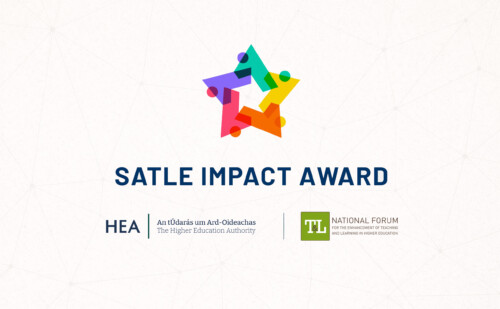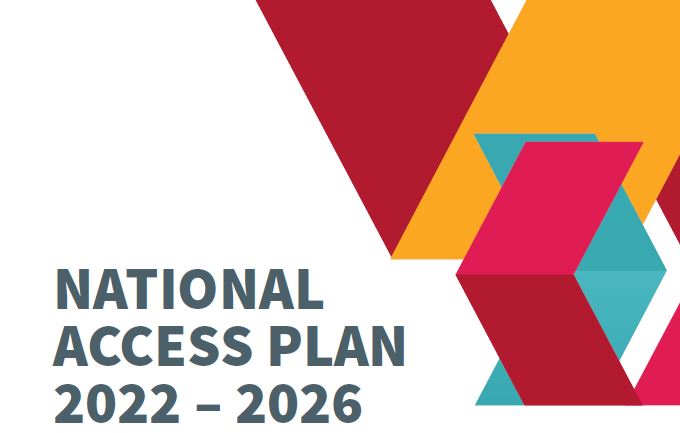
13 January, 2026
By Maura O'Shea
Posted: 16 April, 2021

Background
The Higher Education Authority (HEA) and Department of Further and Higher Education, Research, Innovation and Science (DFHERIS) are preparing the next National Plan for Equity of Access to Higher Education (‘National Access Plan’). The current National Access Plan was published in December 2015. A Progress Review published in December 2018 extended the plan until December 2021.
The current National Access Plan has as its overall vision “to ensure that the student body entering, participating in and completing higher education at all levels reflects the diversity and social mix of Ireland’s population.” A number of priority goals and associated objectives were established to support the implementation of the Plan. Target groups who have been historically under-represented in higher education were also identified with specific targets set for increased participation by each of these groups.
The objective of achieving equity of access to higher education is rooted in principles of equality and social inclusion and has been a longstanding national policy priority in Ireland as well as a European priority. It is critical that our economic, cultural and social development as a nation is led by graduates who reflect the diversity of the population as a whole e.g. socio-economic background, ethnicity, gender, geographical location, disability, age or other circumstances.
Equity of access to higher education, and the development of the next National Access Plan to support this principle, is therefore a key policy priority for the HEA and DFHERIS.
The HEA and DFHERIS now invite contributions and submissions from interested persons and organisations on what they consider should form part of the next National Access Plan that will run from 2022 to 2026. Submissions are welcome on any topic as it relates to widening participation and equity of access to higher education.
Submissions from students (current, former and prospective) are particularly welcome and encouraged. The student voice is critical to the development of the next National Access Plan.
Submission process
Submissions should be emailed to access@hea.ie. The closing date for receipt of submissions is Friday 18 June 2021.
In order to assist supported persons or organisations wishing to make a submission, the HEA has prepared a consultation paper setting out the background to the National Access Plan, and possible questions that might be considered in submissions.
Data protection and Freedom of information
Please note that submissions received will be subject to the Freedom of Information Act 2014. The HEA also intends to publish submissions on its website, with identifying information removed. All contributors are requested to confirm if they do not wish their submission to be published.
The HEA would also like to draw your attention to its Data Protection Notice which explains how and when the HEA collects personal data, why we do so and how we treat this information. It also explains your rights in relation to the collection of personal information and how you can exercise those rights.